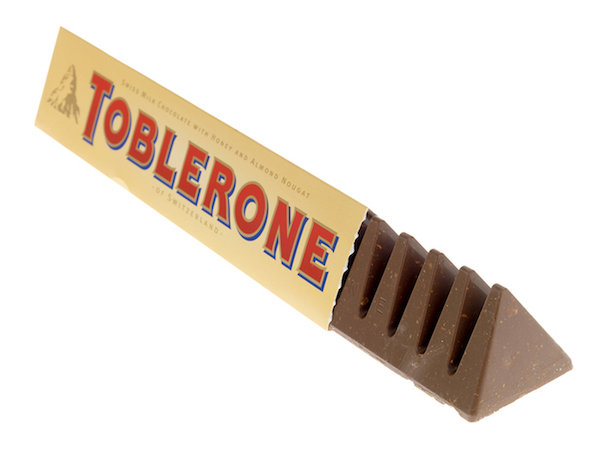|
By Christopher Westley Now that the presidential election is finally over, can we talk about something that actually matters? I’m referring of course to Tobleronegate, meaning the uproar surrounding the Swiss-based (but US-owned) chocolate company, Mondolez International. The company has widened the gaps between the segments of its iconic chocolate bar, reducing its total volume by some 10 percent. Although the reaction has something of an Old Coke-New Coke air to it, one can easily see it as a sign of the inflationary times, an effect of worldwide money creation coordinated by the leading central banks, with Toblerone being just one of many victims. The economics of the decision shouldn’t surprise an actual student of economics. Since inflation is always and everywhere a monetary phenomenon, and since the world’s central banks have been pumping new money into the global economy at unprecedented rates for several years, we should expect an upward pressure on prices. In a Facebook post, Toblerone explained that it was forced into changing its product in response to “higher cost of numerous ingredients,” adding that ...we had to make a decision between changing the shape of the bar, and raising the price. We chose to change the shape to keep the product affordable for our customers, and it enables us to keep offering a great value product. Statements such as this cause Toblerone to become, unwittingly, a case study for how firms in competitive markets respond when monetary inflation raises their costs of production. When that happens, firms are less able to pass the cost on to consumers in the form of higher prices because if they do, they face a strong likelihood of losing market share and revenues. Instead, these firms cut back in terms of volume, size, and portions. We see this all the time. Have you been to a restaurant lately where the menu prices haven’t seemed to change but the portions of food on your plate has? Or opened a bag of chips that hasn’t fallen in size while the volume of chips inside has? Or consumed a product of lower quality than you remembered in less inflationary times because its producer was obligated to change ingredients to break even? The fact is, Toblerone can’t raise its prices willy-nilly due to the many substitutes available to consumers. Critics claiming otherwise ignore this common side effect of inflation in competitive industries, a phenomenon that especially has applied to candy markets in recent years. That said, the public’s response to the new Toblerone ranges from the funny to the bizarre. One person photoshopped a KitKat bar from four sections to two, with a large gap in-between. Others are showing that the new Toblerone gaps can be used for makeshift filing systems suitable for toast or electronics. There is even talk that Toblerone will have to change its intellectual property strategy given that its iconic shape has been changed so drastically. IP lawyers see gold in “them thar gaps.” Then there’s a Brexit angle base, from what I can see, on the argument that (1) some people said bad would come from Brexit, (2) Brexit happened, followed by, (3) Toblerone’s new shape, which obviously then means, (4) Brexit ruined the candy bar. Or something like that. In response, Toblerone claims the change was planned well before Brexit. We can all agree Toblerone underestimated consumer responses to its decision to reduce the volume in one of its signature candies and this, in itself, is not a big deal. One of the reasons why the free market system isn’t perfect is because the firms that comprise it often make mistakes. Just the same, what makes this system superior to the alternatives is the ability of firms to identify and act on those mistakes, whether by themselves or their competitors. New Coke didn’t last long. GM no longer produces Hummers. Meanwhile, my local post office plugs away, unchanged from what I remember it being 25 years ago. Toblerone may announce it made a mistake and go back to the previous shaped candy, albeit at a higher price. Or it might revert to the previous shaped candy but at a smaller volume. Perhaps it will look for inferior ingredients, making it the Swiss chocolate equivalent of corn syrup soda. Yuck. But wouldn’t it be great if, instead, Toblerone turned this incident into a teaching moment for its devoted customers? If it used its social media channels to remind them of the virtues of hard money and the costs of fiat money? If it helped Toblerone aficionados see the relationship between gaps in their candy to mainstream monetary fads that help bring them about? It was rare but not uncommon for firms to make such arguments during the inflationary 1970s. It would be even more satisfying than good Swiss chocolate to see it again. This article was originally publshed at The Mises Institute.
Comments are closed.
|
Archives
July 2024
|



 RSS Feed
RSS Feed



